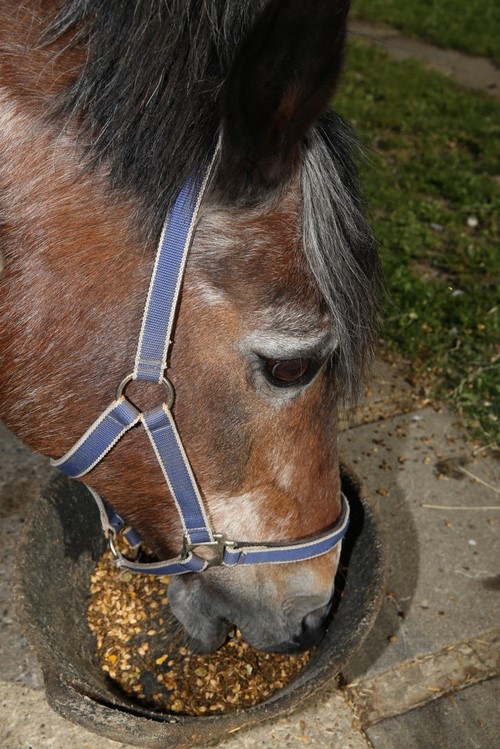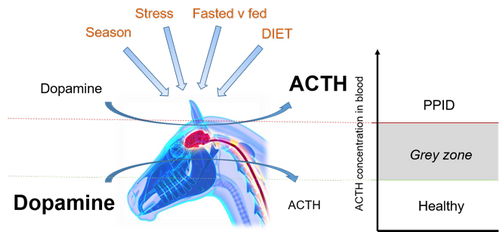New research, conducted in collaboration with SPILLERS®, has shown that the equine diet, and more specifically, a starch rich food, can influence adrenocorticotropin hormone or ‘ACTH’. This could potentially lead to an incorrect disease diagnosis in some horses when ACTH is used to test for Pituitary Pars Intermedia Dysfunction (PPID). The threshold values for diagnosis of the disease currently vary dependent on the season, but these new findings suggest that diet should also be considered.1
 |
PPID, formerly termed Equine Cushing’s Disease, results from a change in hormone regulation in the pituitary gland, which is situated just below the brain. In healthy equids, the release of some hormones from this gland is controlled through another; dopamine. However, in those with PPID, there is a reduction in the amount of dopamine released. This, in turn, removes the restriction of the hormones from the pituitary gland. One such hormone under this control is adrenocorticotropic hormone, ACTH.
A simple ‘baseline’ ACTH test is often used to diagnose PPID, with a result above a certain level deemed as ‘positive’. However diagnosis is not clear cut as there is ‘grey area’ between the threshold for ‘normal’ and positive results.
Diagnosis can also be challenging because the circulating concentration of ACTH is seasonal, peaking in the Autumn. It is also known to vary with stress, exercise and nutritional state (fasted or fed). When the results lie in the grey zone (between the maximum normal and the minimum disease level), a modified test can be used. This involves measuring the ACTH level before and after administering thyrotropin-releasing hormone (TRH). TRH stimulates the release of hormones from the pituitary gland for all horses. However, the subsequent increase in the circulating ACTH is much greater for those with PPID, even in the early stages of the disease, than healthy animals.
 |
The new study was conducted by WALTHAM, who provide the science underpinning the SPILLERS® brand, in collaboration with Michigan State University, Massey University and the University of Minnesota. It investigated the impact of different factors on ACTH levels. Eight senior horses and eight adult horses were all fed grass hay and a rotation of four complementary feed options over seven weeks. The base diet was a low starch and sugar pellet fortified with vitamins and minerals. Horses were fed either the base feed alone or in reduced amounts with one of three options; feeds rich in sugar, starch or fibre. All diets provided the same amount of total energy. The effect of each of these on the ACTH concentrations at specific time points was measured.
As expected, the ACTH in the blood from the senior horses was higher than for the adults. As with previous studies, the level of ACTH was raised in October (Autumn) compared to March, May and August, regardless of age. However, the results revealed that diet can also influence the ACTH levels in horses. The senior horses had much higher levels of circulating ACTH when fed the starch rich diet compared to the adult group at the same time of the year.
Reference
1JacobS.I., GeorR.J, WeberP.S.D., HarrisP.A., McCueM.E. 2018 Effect of dietary carbohydrates and time of year on adrenocorticotropic hormone (ACTH) and cortisol concentrations in adult and aged horses. Domestic Animal Endocrinology, 63, 15-22












